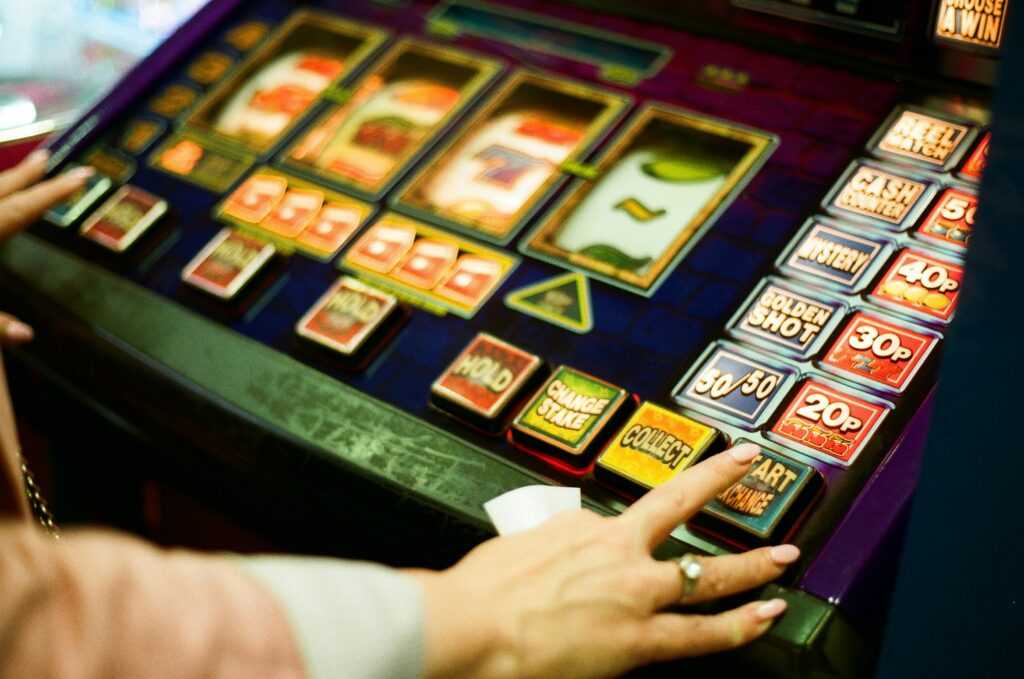As someone passionate about mental health and well-being, I’ve delved into the crucial topic of recognizing problem gambling. It’s essential to understand the signs and solutions to support those facing this challenge.
Problem gambling can impact individuals of all backgrounds, often remaining hidden behind a facade. By shedding light on the telltale signs, we can take proactive steps towards intervention and recovery.
In this article, I’ll explore the red flags that may indicate problem gambling behavior, ranging from financial secrecy to a preoccupation with betting.
Additionally, I’ll delve into effective solutions and resources available for both individuals struggling with gambling addiction and their support networks. Together, we can raise awareness, offer guidance, and foster a supportive environment for those navigating the complexities of problem gambling.
Understanding Problem Gambling
Definition of Problem Gambling
Problem gambling refers to the urge to gamble continuously despite harmful negative consequences or a desire to stop. It is a behavioral addiction characterized by a loss of control over gambling habits, leading to adverse effects on an individual’s life, finances, and relationships.
Impact of Problem Gambling on Individuals and Families
Problem gambling can have devastating effects on both individuals and their families. It can lead to financial difficulties, emotional distress, and strained relationships. Individuals may experience anxiety, depression, or even suicidal thoughts, while families often face the stress of dealing with the consequences of the addiction.
It is crucial to recognize these impacts and seek help to address and overcome problem gambling effectively.
Recognizing Problem Gambling
When it comes to recognizing problem gambling, understanding the various signs is crucial in offering help and support to those in need. By identifying behavioral, financial, and social indicators, one can intervene early to address this issue effectively.
Behavioral Signs of Problem Gambling
Observing behavioral cues can be pivotal in recognizing problem gambling. Some common behavioral signs include:
- Increased secrecy: A person may become secretive about their gambling activities, hiding receipts or lying about their whereabouts.
- Preoccupation with gambling: Constantly talking about or thinking about gambling can indicate a developing issue.
- Changes in mood: Mood swings, irritability, or restlessness when not gambling could suggest a problem.
- Difficulty controlling impulses: Inability to stop gambling despite negative consequences is a significant red flag.
Financial Signs of Problem Gambling
Financial indicators can also shed light on potential problem gambling behavior. Look out for the following financial signs:
- Constant financial troubles: Struggling to pay bills or frequent requests for money may signal a gambling problem.
- Sudden changes in financial behavior: Unexplained withdrawals, loans, or unaccounted expenses could point to gambling issues.
- Depleting savings or assets: Rapid depletion of savings or selling valuable possessions to finance gambling habits is a serious concern.
Social Signs of Problem Gambling
Social interactions can provide valuable insight into identifying problem gambling. Pay attention to the following social signs:
- Neglecting responsibilities: Ignoring work, family, or social obligations in favor of gambling is a worrisome behavior.
- Strained relationships: Conflict with loved ones or withdrawal from social activities might indicate underlying gambling problems.
- Isolation: Spending excessive time gambling alone and avoiding social interactions can be a signal of a deeper issue.
By recognizing these behavioral, financial, and social signs of problem gambling, individuals can take proactive steps to address the issue and seek appropriate support and assistance.
Strategies for Addressing Problem Gambling
Building a robust framework around problem gambling involves multifaceted approaches that contribute to effective intervention and support. As I delve into strategies for addressing problem gambling, it is crucial to emphasize proactive measures that can aid individuals in overcoming this challenge.
- Early Intervention:
I’ll highlight the significance of early intervention in dealing with problem gambling. By promptly identifying warning signs and initiating conversations with the individual, we can prevent the escalation of the issue. - Education and Awareness:
Educating oneself and others about problem gambling is paramount. By disseminating information about the risks, consequences, and available resources, we contribute to a better-informed community equipped to address the issue. - Setting Limits and Boundaries:
Establishing clear limits and boundaries around gambling activities is essential. By defining specific parameters for time spent and money wagered, individuals can exercise greater control over their behavior. - Seeking Support Services:
Accessing professional support services and counseling is a crucial step in addressing problem gambling. These services offer tailored interventions and guidance to help individuals navigate their challenges effectively. - Engaging in Alternative Activities:
Encouraging the engagement in alternative leisure activities can divert focus from gambling. Pursuits such as hobbies, sports, or social gatherings provide healthy outlets for individuals seeking to break free from addictive behaviors. - Financial Planning and Management:
Implementing sound financial planning and management practices can aid in curbing compulsive gambling tendencies. Budgeting, saving strategies, and seeking financial advice help individuals regain control over their monetary decisions.
By implementing these strategies and fostering a supportive environment, individuals grappling with problem gambling can embark on a journey towards recovery and wellness. Recognizing the importance of a holistic approach, these interventions aim to not only address the symptoms but also target the underlying causes of addictive behavior.
The ultimate goal remains to empower individuals, promote resilience, and cultivate a community that values mental health and well-being as foundational pillars of a fulfilling life.
Support and Treatment Options
In addressing problem gambling, it’s essential to explore various support and treatment options to aid individuals in overcoming this challenge effectively. Here are some key strategies and resources that can help in managing and treating problem gambling:
- Counseling Services: Seeking professional counseling can be highly beneficial for individuals struggling with problem gambling. Therapists and counselors specialized in addiction can provide valuable support and guidance in addressing underlying issues contributing to compulsive gambling behavior.
- Support Groups: Joining support groups such as Gamblers Anonymous offers a sense of community and understanding from others facing similar challenges. These groups provide a platform for sharing experiences, receiving advice, and fostering accountability in the recovery process.
- Helplines and Hotlines: Utilizing helplines and hotlines dedicated to assisting individuals with gambling problems can offer immediate help and support in times of need. Trained professionals are available to provide guidance, information, and crisis intervention 24/7.
- Financial Counseling: Seeking financial counseling can help individuals manage debt, regain financial stability, and create a budgeting plan to prevent future financial turmoil associated with problem gambling.
- Treatment Programs: Enrolling in specialized treatment programs for gambling addiction, such as inpatient or outpatient programs, can provide structured support, therapy, and interventions tailored to address the specific needs of individuals struggling with problem gambling.
- Medication: In some cases, medication prescribed by healthcare professionals may be beneficial in treating co-occurring mental health conditions or symptoms associated with problem gambling, such as anxiety or depression.
- Self-Exclusion Programs: Participating in self-exclusion programs offered by casinos and online gambling platforms can help individuals restrict their access to gambling activities, creating barriers to prevent impulsive behavior.
By utilizing these support and treatment options, individuals can take proactive steps towards addressing problem gambling, seeking help, and embarking on a journey towards recovery and a healthier relationship with gambling activities.



 At the helm of SmartGambleFactor is Calvino Hancockster, the founder and driving force behind the platform. With a deep-rooted passion for betting and years of hands-on experience, Calvino established this blog as a resource to share his knowledge and expertise with the broader betting community. His mission is to demystify the complexities of the gambling world and offer actionable advice that can lead to more successful wagers. By creating SmartGambleFactor, Calvino hopes to foster a community of informed and responsible bettors who can benefit from reliable and insightful guidance.
At the helm of SmartGambleFactor is Calvino Hancockster, the founder and driving force behind the platform. With a deep-rooted passion for betting and years of hands-on experience, Calvino established this blog as a resource to share his knowledge and expertise with the broader betting community. His mission is to demystify the complexities of the gambling world and offer actionable advice that can lead to more successful wagers. By creating SmartGambleFactor, Calvino hopes to foster a community of informed and responsible bettors who can benefit from reliable and insightful guidance.

